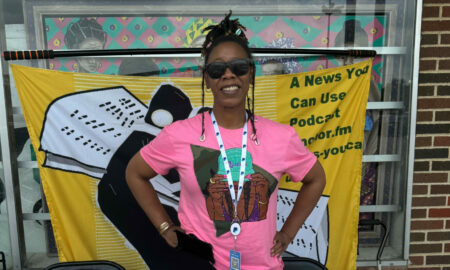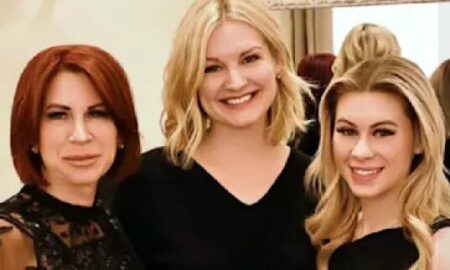

Today we’d like to introduce you to JR. Forasteros.
JR., let’s start with your story. We’d love to hear how you got started and how the journey has been so far.
I was raised in a pretty typical Evangelical Church – a lot of our focus was on personal piety and an escapist faith. Our end goal was “going to Heaven” after we died, so we didn’t put much emphasis on education (unless it was about God) or arts (Thomas Kinkade is the most popular Evangelical artist, I think). I pursued education about God – I experienced a call to be a pastor, after all. But the more I learned about God, the more I fell in love with art and with the world.
I started a blog back when Xanga was cool (remember that?), and I eventually settled into reviewing films and books. I found spaces again and again within these works, spaces to explore what is good and beautiful and human and divine and true. And I began to discover those same spaces in my own writings.
I’ve come to believe the world is sacred, not a place to escape but a place God loves. I’ve come to see learning as a holy curiosity – and EVERYTHING is worth being curious about. And I’ve come to see people – all people – as reflections of the divine mystery. Every culture, every creation of that culture, has seeds of that mystery. Art, both creating and receiving from another, has become, for me, a form of worship.
Today, I’m a writer, a podcaster, a pastor and, most recently, a teacher. I teach writing for Writing Workshops Dallas, where I get to help other writers discover those spaces in their own work. I preach and help others preach (which is really a process of learning how to talk about the work of God inside ourselves and for the good of others). I host conversations that bring a mosaic of voices to the table to learn from one another. And I continue to explore that mysterious space within myself where God dwells.
Overall, has it been relatively smooth? If not, what were some of the struggles along the way?
In both writing and preaching, rejection is an unavoidable fact. Like all art, these aren’t true unless they come from an honest place. As sad as it sounds, honesty isn’t always valued in preaching. It can be dangerous to process growth and transformation with a group of people because transformation is messy, and too often, religion promises a neat and tidy faith. I was fired from my first ministry job for blogging about some theological questions I was asking. That one was scary.
The process of becoming a published author is terrifying, in part because it’s so opaque. I have several good friends who shepherded me through the process of getting an agent, assembling a proposal and dealing with rejection after rejection.
My first time teaching writing was terrifying. I’m in front of thousands of people a year, talking for dozens of hours. But the first time doing something new is always the hardest, every time.
Catalyst Church – what should we know? What do you guys do best? What sets you apart from the competition?
Catalyst Church is a unique group of people. The most common refrain we hear from guests is, “I felt like I was hanging out with friends in my living room.” We are committed to an inclusive, radical hospitality. We want every single person who joins us to feel like they’re part of the family, so to speak.
We really do mean “anyone”. We befriend people of other faiths and no faith. We don’t see our beliefs and practices as a barrier to keep strangers out, but bridges that help us connect with others. We know we have a lot to learn, that the better we welcome people who aren’t like us, the easier it is for us to welcome the God who is wholly unlike us.
I think that’s why my writing and communication style was a good fit for Catalyst. When Jesus talked about God, he didn’t use a lot of theological language – he mostly told stories lifted from the experiences of the people listening. “A man had two sons…”, “A woman had ten coins…”, “A man with three employees was going on a trip…” When I write and talk about my experience of God, I do my best to emulate Jesus, communicating in a way that a person doesn’t need a theology degree or 20 years in a church pew to understand.
Catalyst was already this sort of church when they hired me. We were a great fit for one another.
What is “success” or “successful” for you?
In writing, I work hard to keep my eye on the craft. Is this thing I’m writing the best example of my skills? Does this new project I’m taking on stretch me beyond where I’m comfortable? Am I excited? It’s easy to get wrapped up in page views and sales numbers (and hey, particularly when someone else is paying to put my book into the world, the sales numbers matter!). But I can’t let what other people think of my words be my metric.
My goal in preaching is somewhat more abstract: do people walk away with a clear challenge? Have I helped them listen for the voice of God in their own lives and feel confident that they can take the next step in their spiritual journey?
My secondary goal in all of this is considering whether I am highlighting marginalized voices. Am I sharing stories and experiences from those we usually silence? Am I equipping those who are called but ignored? I’ve found podcasting to be a powerful medium for introducing my audience to people they wouldn’t normally encounter.
Contact Info:
- Address: 7200 Princeton Road
Rowlett, TX - Website: www.wearecatalyst.church
- Email: info@catrow.org
- Instagram: http://wwww.instagram.com/catalystrowlett
- Facebook: http://wwww.facebook.com/catalystrowlett







Image Credit:
Rachel Reis
Getting in touch: VoyageDallas is built on recommendations from the community; it’s how we uncover hidden gems, so if you know someone who deserves recognition please let us know here.

















